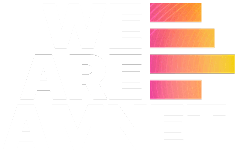Introduction
The digital marketing landscape is evolving at a rapid pace. For marketing professionals, staying competitive requires not only awareness of emerging trends but also a clear strategy to adapt and implement them effectively. From leveraging AI to navigating new channels like voice search and in-feed shopping, the trends shaping 2025 present opportunities to innovate, connect, and grow.
This blog explores the most important digital marketing trends for 2025 and provides actionable insights to help you stay ahead.
1. AI and Automation: The New Standard in Digital Marketing
- Why It Matters: AI tools enable marketers to analyze vast data sets, uncover actionable insights, and deliver highly personalized campaigns.
- Practical Applications:
- Predictive analytics to forecast customer needs.
- Chatbots and virtual assistants for 24/7 customer support.
- Dynamic creative optimization (DCO) for real-time ad adjustments.
- Data Management and Analysis: AI-driven tools streamline the collection, organization, and analysis of massive datasets, uncovering actionable insights for smarter decision-making.
- Personalization at Scale: Deliver hyper-targeted experiences by tailoring emails, ads, and web content to individual user preferences in real-time.
- Content Creation and Editing: From generating copy and visuals to optimizing headlines and layouts, AI enhances creativity and efficiency in content production.
- Predictive Insights: Forecast customer behaviors, market trends, and campaign performance to stay ahead of the curve.
- Enhanced Automation: Automate repetitive tasks like scheduling, reporting, and lead scoring to free up time for strategic efforts.
- Conversational AI: Chatbots and virtual assistants provide 24/7 customer support, enhancing engagement and satisfaction.
- Optimization in Real-Time: Use dynamic creative optimization (DCO) to adjust ads and other content based on audience behavior and preferences instantly.
Pro Tip: Leverage tools like Adobe Sensei or Salesforce Einstein to harness the power of AI in your marketing workflows
2. The Continued Rise of Short-Form and Snackable Content
With the continued popularity of short-form content, platforms like TikTok, Instagram Reels, and YouTube Shorts have become dominant players in the content game. These videos are perfectly suited for capturing attention quickly and delivering impactful messages in a concise format.
- Why It Works: Short-form videos deliver value efficiently, making them perfect for storytelling, product launches, and even thought leadership.
- How to Adapt:
- Invest in visually engaging videos.
- Utilize trends like user-generated content (UGC) to boost authenticity.
- Experiment with interactive features like polls or clickable overlays: Use platform-specific interactive tools such as polls on Instagram Stories, clickable overlays on YouTube, or Q&A stickers on TikTok to boost engagement and encourage audience participation.
Pro Tip: Create a content calendar that prioritizes short-form video formats and aligns with platform-specific trends.
3. Influencer Marketing: Amplifying Reach and Building Trust
Influencer marketing continues to grow as a powerful strategy for reaching and connecting with target audiences. Collaborating with influencers enables brands to build credibility and expand their reach authentically.
- Key Benefits:
- Brand Awareness: Influencers help introduce your products to their engaged audiences.
- Trust and Credibility: 71% of shoppers are more likely to purchase products endorsed by influencers they trust.
- Niche Markets: Micro-influencers (10,000–50,000 followers) are particularly effective for engaging specific demographics.
Pro Tip: Partner with influencers who align with your brand’s values and use analytics to track campaign performance.
4. Voice Search and Conversational Marketing
“Hey Alexa/Siri or Okay Google”, where can I find the best skincare products near me? This isn’t just how people search—it’s how they interact with brands. Voice search is reshaping the way we think about SEO and customer engagement.
- The Trend: Natural language queries are taking over, which means optimizing for conversational keywords is non-negotiable.
- How to Adapt:
- Build FAQs and blog content that address common voice queries.
- Use long-tail keywords that mimic how people speak.
- Optimize for local search, as many voice searches are location-based.
Pro Tip: Combine voice-friendly SEO with multimedia content like videos and interactive FAQs to enhance engagement.
5. Ethical Considerations in Digital Marketing
Ethical marketing is no longer optional; it’s a necessity for building trust and long-term relationships in a digital-first world. As marketing becomes more data-driven, brands must address key ethical challenges to maintain their credibility and foster consumer loyalty.
Key Ethical Challenges in Digital Marketing
-
- Data Privacy and Security
- Collect and use customer data transparently, ensuring explicit consent.
- Safeguard against data breaches to maintain consumer trust.
- Balance data-driven personalization with privacy concerns.
- Misleading Advertising
- Avoid deceptive claims or manipulative tactics.
- Prioritize clear, honest messaging over clickbait or sensationalism.
- Ethical Influencer Marketing
- Ensure influencers disclose paid partnerships.
- Choose authentic influencers who align with your brand values.
- Ethical Use of AI
- Mitigate bias in AI algorithms and avoid spreading misinformation.
- Promote fairness and transparency in AI-driven marketing practices.
- Data Privacy and Security
How to Stay Ethical
- Be transparent about your marketing practices and data usage.
- Respect consumer privacy and prioritize inclusivity in campaigns.
- Use your platform for positive impact while avoiding harmful stereotypes.
Pro Tip: Regularly audit your campaigns for ethical compliance and prioritize practices that align with customer values
Conclusion
As we move further into 2025, the digital marketing landscape continues to be shaped by innovation and the need for adaptability. The trends highlighted in this blog offer significant opportunities to connect with audiences through AI-driven personalization and engaging short-form content. Maintaining trust through ethical practices remains crucial, and embracing emerging channels like voice search and in-feed shopping is essential for long-term success. The challenge for marketers is to strategically implement these trends, continuously adapt, and stay closely aligned with evolving customer needs. By leveraging these insights and fostering a culture of ongoing innovation, brands can solidify their position as leaders in the ever-evolving digital digital landscape.
Ready to embrace the future of marketing? Let these trends guide you to a successful 2025.






